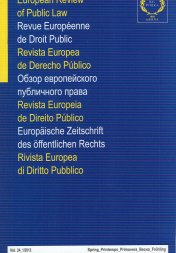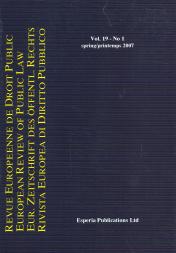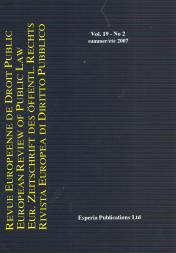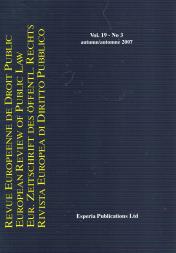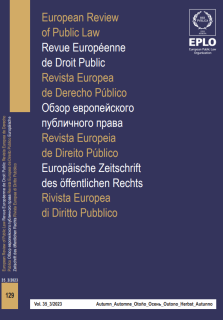
Jurisprudence Constitutional / Constitutionnelle
2022
Portugal
António Manuel Abrantes
Legal adviser at the Portuguese Constitutional Court
Catarina Gouveia Alves
Legal adviser at the Portuguese Constitutional Court
Nuno de Lemos Jorge
Legal adviser at the Portuguese Constitutional Court
The present chronicle gives an overview of the Portuguese Constitutional Court case law of 2022. In this year, the Court issued an important decision regarding the Covid-19 pandemic – which was unmistakably the topical subject of 2022 –, namely concerning distribution of powers between the Parliament and the Government in the definition of criminal offenses during the state of emergency and the state of calamity, constitutionality of the provisions that determined a period of compulsory confinement or prophylactic isolation in respect of passengers arriving on certain flights, and constitutionality of provisions determining a mandatory confinement period for citizens subject to active surveillance by the health authorities. Besides this ruling, the Court faced relevant challenges in different fields of the Portuguese legal framework. As usual, Criminal and Tax Law stood out as the main legal areas approached by the Portuguese Constitutional Court. There were also thought-provoking Rulings on the legal upper age limit in adoption proceedings and rules concerning publicity of “assisted adults” proceedings. All of this is reflected in the decisions summarized in the chronicle.
La présente chronique donne un aperçu de la jurisprudence de la Cour constitutionnelle portugaise pour 2022. Au cours de cette année, la Cour a rendu une décision importante concernant la pandémie de Covid-19 – qui était incontestablement le sujet d’actualité jurisprudentielle de 2022 –, notamment en ce qui concerne la répartition des pouvoirs entre le Parlement et le Gouvernement dans la définition des infractions pénales pendant l’état d’urgence et l’état de calamité, la constitutionnalité des dispositions qui déterminent une période de confinement obligatoire ou d’isolement prophylactique à l’égard des passagers arrivant sur certains vols, et la constitutionnalité des dispositions déterminant une période de confinement obligatoire pour les citoyens soumis à une surveillance active par les autorités sanitaires. Outre cet arrêt, la Cour a été confrontée à des défis pertinents dans différents domaines du cadre juridique portugais. Comme d’habitude, le droit pénal et le droit fiscal ont été les principaux domaines juridiques abordés par la Cour constitutionnelle portugaise. Il y a également eu des décisions de réflexion sur la limite d’âge légale supérieure dans les procédures d’adoption et des règles concernant la publicité des procédures “adultes assistés”. Tout cela se reflète dans les arrêts résumés dans la chronique.














